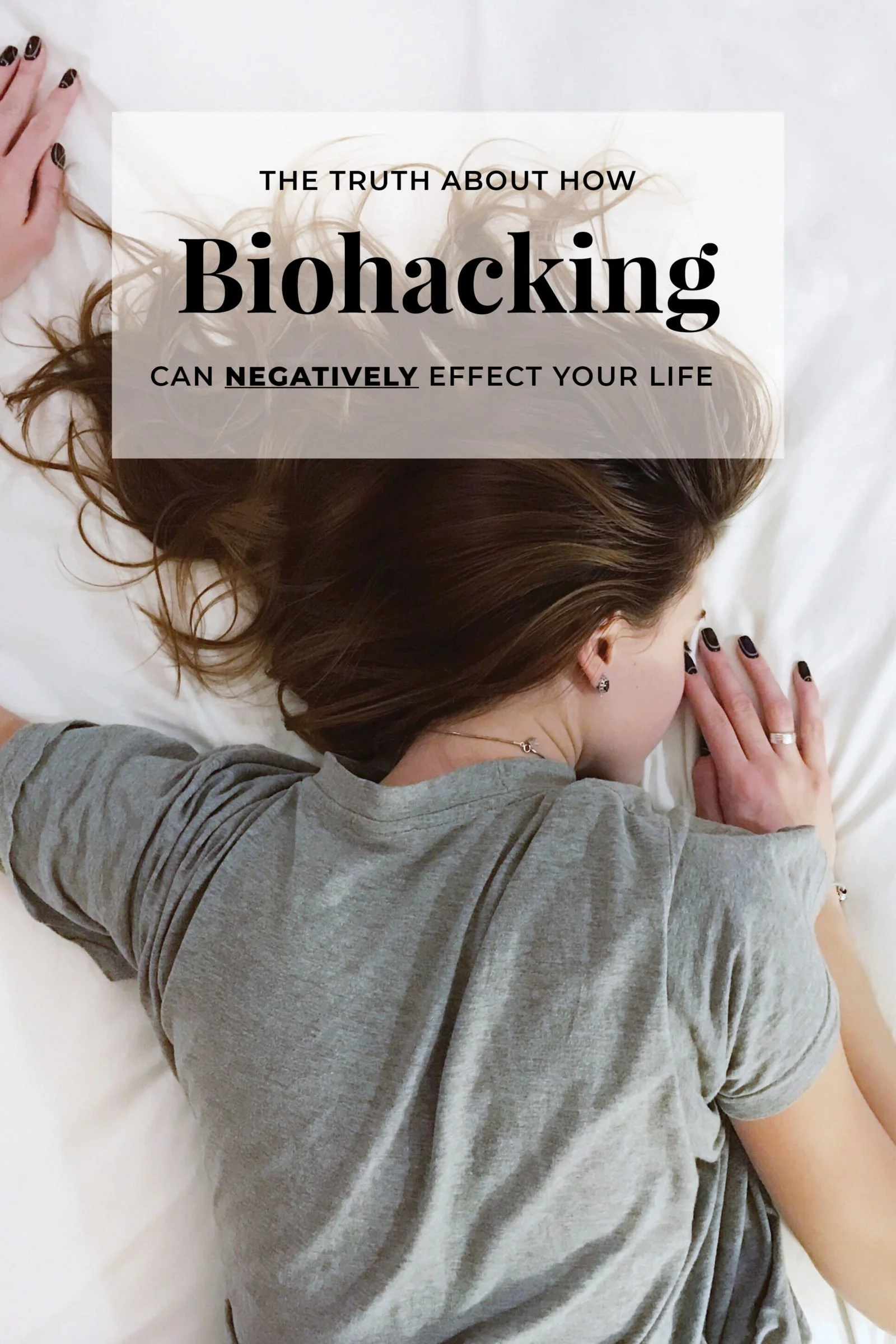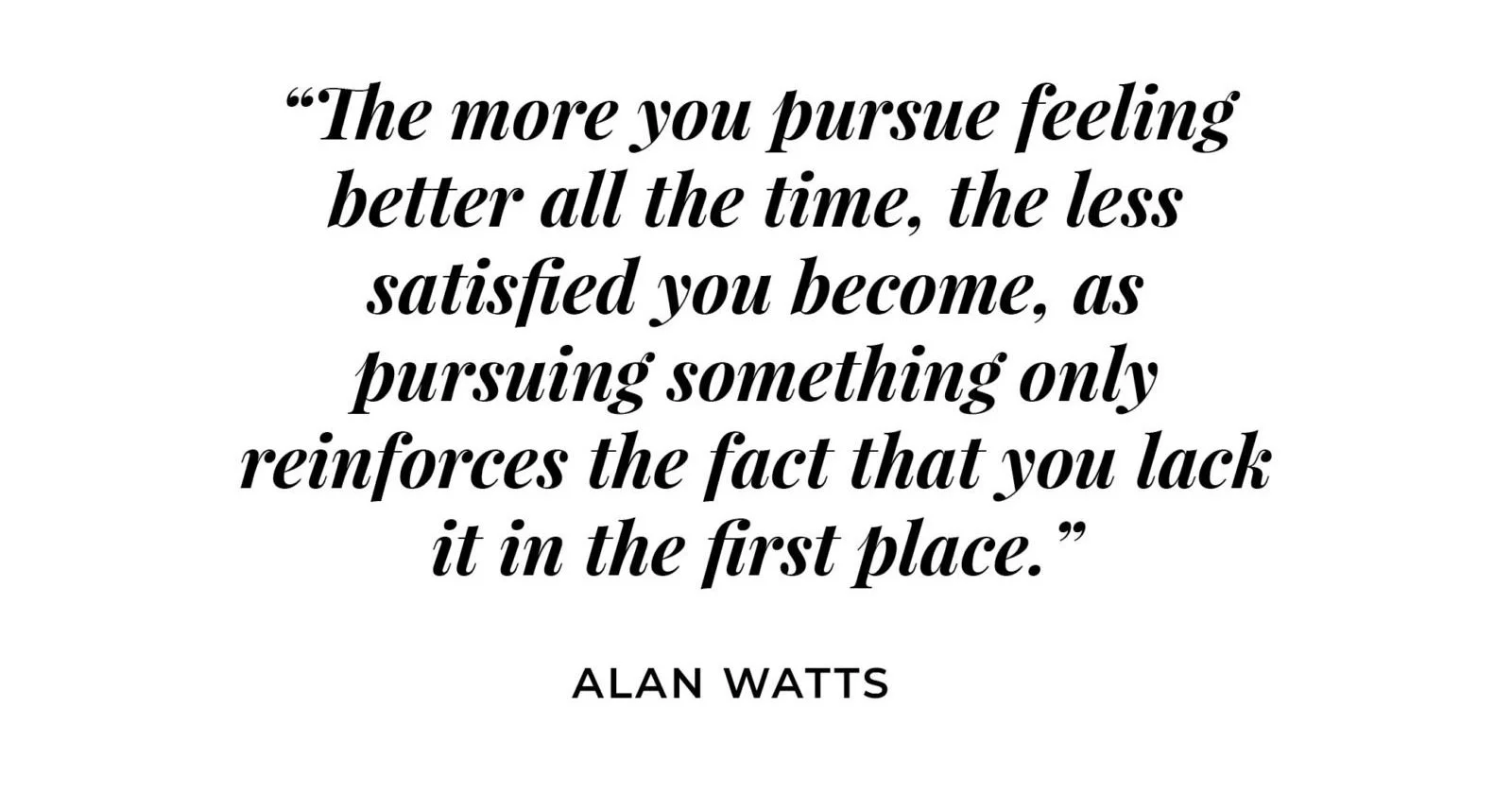The Truth About How Biohacking Can Negatively Effect Your Life
If you read my Morning and Evening Routines blog post, you’d be hard-pressed not to accuse me of being an inflexible routine junkie that prefers supplements to sustenance and self-improvement books & podcasts to regular forms of entertainment.
My Introduction to Biohacking
‘Tis true, I often spend swaths of time learning, trying to grow into a better version of myself. So, when biohacking exploded onto the scene a few years ago, I was intrigued. The term refers to going to great lengths to alter one’s own biology through diet, surgery, and alternate, often unsubstantiated, forms of therapy. I drank a little of the Kool-aid, bought some recommended products, and made some routine adjustments. As intriguing as they sound … I have not given myself a coffee enema or meticulously tracked my sleep with an Oura Ring, (which incidently I received as a Christmas gift) or microdosed MDMA or LSD.
I’ll stress that “yet” doesn’t mean I’m opposed to any of these methods or products, but right now (much akin to my woes with social media last year), I’m a crossroads with the pursuit of perfection. So this blog will likely seem counter-intuitive to just about everything I’ve written to date. I’m mostly writing it for myself — in an attempt to keep myself in check and ensure I don’t biohack myself to death.
The Negative Side of Biohacking
How did I come to this flash of doubt about something that is only intended to do me good?
Well, it was a series of events of which I’ll share two.
One morning, I was standing in the kitchen in my underwear, making a bulletproof coffee, contemplating whether I’d fasted for the full 12 hours I was supposed to. As I scooped the unsalted grass-fed butter, MCT Oil — a very expensive medium-chain triglyceride coconut oil — and the collagen powder into my black coffee, a subtle question dropped into my not-yet-supercharged brain. When did putting fat in my coffee become the healthy option?
Then, as I polished off my (estimated) $5-per-cup morning beverage (more like a “meal”) and waited for ketosis to kick in (while visions of fresh fruit and pastries danced in my head), I asked myself: Have I gone too far?
The second tell-tale sign that yes, maybe I had, was when my Amazon shipment of “everything I was probably deficient in” supplements hadn’t yet arrived (I guess all things just aren’t immediate). I started to feel A LOT of anxiety.
This funk persisted until I’d had my supplement fix: a combination based on what every blog I’d read and podcast I’d listened to had suggested. I’m told these things aren’t addictive, but by taking them so religiously, I’d become a Woody Allen-esque neurotic.
Now, before I continue, I’d like to admit up front that I like bulletproof coffee — it makes me feel good. And many of the habits I’ve adopted and supplements I’ve taken have, at times, helped me function at a higher level.
And for those who do take their biohacking and self-improvement seriously, I absolutely respect your determination and dedication.
My question (to myself) is: Is all this expensive biohacking really helping us be happy? Because for me, it has become all-consuming and stressful to keep up the “hacking.”
And I found out there may be more than one reason for that.
The famed philosopher, Alan Watts, referred to our pursuit of positive experiences as the Law of Reversed Effort (Backwards Law). He stated that “The more you pursue feeling better all the time, the less satisfied you become, as pursuing something only reinforces the fact that you lack it in the first place.”
Wait. What?
Didn’t quite connect with that?
Mark Manson sums it up perfectly: “The desire for more positive experiences is in itself a negative experience. And paradoxically, the accepting of one’s negative experiences is a positive one.”
Ya, that hits home with me!
Whenever I spin questions around in my head about why I’m not rich, performing at the same level as so and so, why my Instagram life isn’t as awesome as the person I follow with 100,000 followers … a vortex of self-defeating thoughts isn’t too far away. Neither is that sinking feeling of anxiety in my chest mixed with a bit of self-loathing depression.
The antidote is a combination of things: 1) Rush to Amazon to get the latest self-help book; 2) Buy some new supplements that should bring relief; 3) Listen to podcasts and make a long list of all the things successful people do and try and implement every one of them into my life.
Cold tubs, infrared saunas, krill oil (among hundreds of other potential supplements), Oura Rings, cooling mats to sleep on, blue-light-blocking glasses, collagen powder (among a dozen other shake supplements), a variety of different diets, bulletproof coffee, cold-pressed juices … the list goes on and on. There is no shortage of things available to help make you feel better.
All this stuff is expensive; tapping your finances to fund these habits can, you guessed it, cause stress and anxiety. It certainly did for me.
Then comes the rigour of the routine and that shitty feeling that, damn it, I didn’t have time to meditate, journal, read an entire book, and workout today because a whole bunch other things were priorities (work, family, life).
I hope I’m not just talking about myself here!
I gotta say … it is isn’t exactly an aphrodisiac for your partner if you’re trying to make it to bed with military precision, whilst sleeping on an earth/cooling mat, listening to 432 Hz binary sleep sounds and creating a literal black-out condition. I ask again … am I just talking about myself here – or can you relate?
Well, my conclusion is that trying to be happy and optimized all the same damn time is just way too much pressure.
Giving Biohacking a Second Try
Serendipitously, as I was contemplating this very blog, an email related to the ancient aesthetic Zen Buddhism philosophy, Wabi Sabi, appeared in my inbox. Was it a sign?
Maybe. But at the very least, it was a reminder of another reason biohacking, at times, seemed somewhat counter-intuitive to my nature. You see, Wabi Sabi is essentially the embracing of imperfection. This Japanese philosophy celebrates the beauty in what’s natural, imperfections included.
It was a quote from “The Unknown Craftsman” by Soetsu Yanagi. It helped define why my biohacking maybe didn’t feel all that natural at times. He said, “We, in our own human imperfections, are repelled by the perfect.”
And my biohacking sometimes certainly felt less like improvement and more like trying to literally perfect every aspect of my being and my life.
My father always tells me that all paths lead back to OM. What he means is that all things return to your breath, presence and a quiet mind. In other words, when you’re feeling anxious, envious, shitty about thyself and want to go buy everything that’ll fix you: STOP YOURSELF! Instead, sit down and take a breath. And, if you like, chant OM as you exhale.
Don’t seek the answer outside of yourself; instead, look within.
But, when I biohack, I’m better at all that. Not to mention, I’m an efficient and creative beast at work, at the gym, and in everything else I tackle.
A Simple Guide to Biohacking
Therein lies the crux of the problem. The easiest answer I’ve come up with thus far is a simplistic one: Balance and Letting Go are the key ingredients for extreme biohacking and self-improvement.
Routines can be powerful tools for success — but let go of worrying about your routine if it falls apart sometimes.
I’ve personally found supplements can help with deficiencies and optimum function — but cycle off them from time to time and don’t rely on them.
Ensure you get a good night’s sleep (track it if you’d like) — but don’t stress about the data and worry about your “performance score.”
Read at your own pace — so you still enjoy it.
Remember: the fact that you are trying to be the best at a million things may be what’s causing you stress in the first place. You could consider stopping something instead of taking something else just so you can keep doing the thing that is causing all the stress.
Accept that you’re pretty damn awesome in all your mediocrity and, oh ya, you’re going to age and eventually die. Let’s face it, many of us struggle with life and are terrified of growing old and of our mortality.
Accept that you may not be your best self today — and that’s okay.
Surrender, just a little to the unpredictability of life.
Pick which remedies you can afford and fit with your life. Although it’s good to rethink your supplements as you change, it’s not necessarily better to keep adding to the list of things you take and the routine you have.
There is obviously nothing wrong with the self-improvement; it’s a very good thing. There is nothing wrong with eating for optimal health and performance; our bodies love it when we treat them well. There are loads of great ideas in the biohacking and self-help world to fight against a lot of the bad habits we’ve adopted. Heck, I think Michael Pollan makes some damn good point regarding positive use of psychedelic drugs for a whole host of reasons.
Closing thoughts on Biohacking, Selfcare & Wabi Sabi
Maybe biohacking is just an evolutionary step for a fast-paced world where competition is fierce and we have to hack our biology to speed up our performance in order to be a thriving human being.
Maybe…
Or, maybe we just need to balance it all with a bit of Wabi Sabi.
I now look at all these hacks as part of a toolkit to help me reach certain personal and professional goals. But I continue to remind myself that life isn’t just about winning — it’s also about being and accepting.
Be balanced in these matters and stop trying to regiment yourself so much that you can’t partake in some of the other enjoyable parts of living: relaxing, doing nothing, being spontaneous, and just plain “sucking-at-life-and-not-worrying-about-it” every now and again. Because, even when you’re sucking-at-life (according to some asshole you’ve never met who set the standard for what is and isn’t sucking at life), just remember you’re a human being in a body that grew from a couple of cells without any supplements or sleep hacks and, that in and of itself, is freaking amazing.
Please note: that I am not a doctor or am not recommending or endorsing any products. The Content is not intended to be a substitute for professional medical advice, diagnosis, or treatment. Always seek the advice of your physician or other qualified health provider with any questions you may have regarding a medical condition.
Thanks for Reading, be well!






